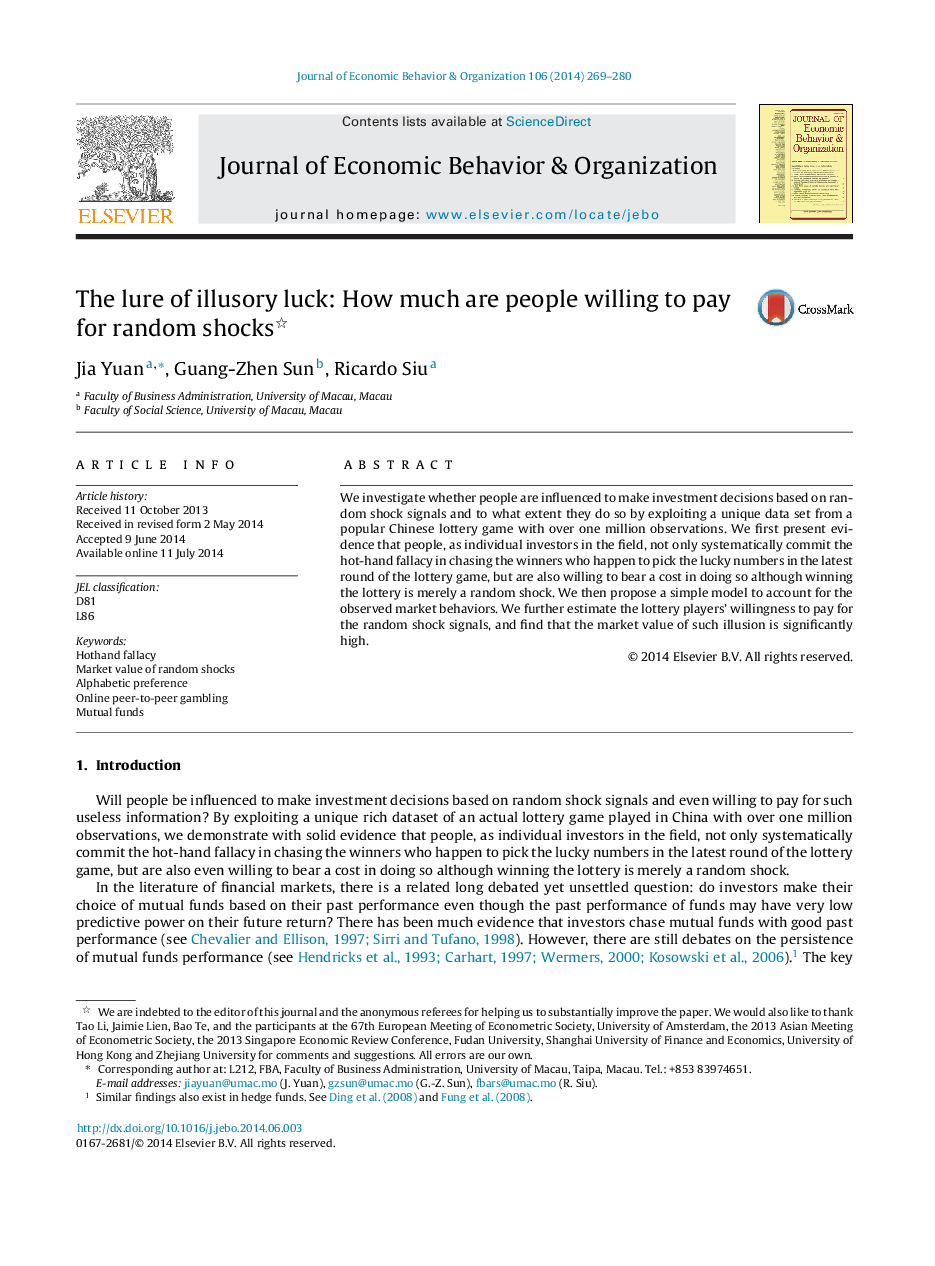| Article ID | Journal | Published Year | Pages | File Type |
|---|---|---|---|---|
| 7243483 | Journal of Economic Behavior & Organization | 2014 | 12 Pages |
Abstract
We investigate whether people are influenced to make investment decisions based on random shock signals and to what extent they do so by exploiting a unique data set from a popular Chinese lottery game with over one million observations. We first present evidence that people, as individual investors in the field, not only systematically commit the hot-hand fallacy in chasing the winners who happen to pick the lucky numbers in the latest round of the lottery game, but are also willing to bear a cost in doing so although winning the lottery is merely a random shock. We then propose a simple model to account for the observed market behaviors. We further estimate the lottery players' willingness to pay for the random shock signals, and find that the market value of such illusion is significantly high.
Keywords
Related Topics
Social Sciences and Humanities
Economics, Econometrics and Finance
Economics and Econometrics
Authors
Jia Yuan, Guang-Zhen Sun, Ricardo Siu,
